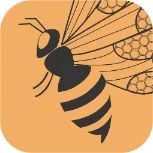Comprehensive Detailed Guide about Red Gum Honey
Table Of Contents

- What is Red Gum honey?
- Origin of Red Gum Honey
- HOW Red Gum Honey is produced by the Bees?
- How Red Gum Honey is Extracted?
- Properties of Red Gum Honey
- What's The Difference Between Manuka Honey and Red Gum Honey?
- About Antimicrobial Potency of Red Gum Honey
- What Are The Benefits OF Red Gum HONEY?
- How to Use Red Gum Honey?
- IS Red Gum Honey Vegan?
- Risks of Consuming Red Gum Honey
- Takeaway
- Our Red Gum Honey
What is Red Gum honey?
Red gum honey is an active healing honey, produced by the bees using the flower nectar of River Red Gum trees. Original name of this tree is Eucalyptus camaldulensis and is found mainly in numerous parts of Australia. It is a luxurious & rare honey variety with numerous health benefits.
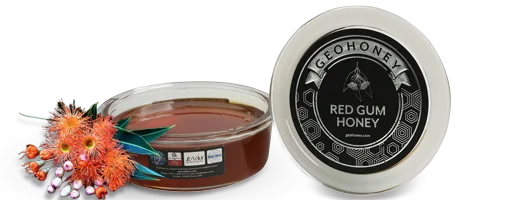

Origin of Red Gum Honey
Eucalyptus camaldulensis, usually known as the river red gum, is a tree that is endemic to Australia. It has smooth white or cream-hued bark, curved grown-up leaves, blossom buds in gatherings of seven or nine, white blossoms and hemispherical fruit with the valves extending beyond the rim. A recognizable and iconic tree, it is seen along numerous watercourses across inland Australia, giving shade in the extreme temperatures of central Australia.
These trees typically grow to a height of 20 – 45 mtrs, flowering mainly in summers with beautiful white blossoms. The fruits of Red Gum tree are woody, hemispherical capsule 2-5 mm (0.079-0.197 in) long and 4-10 mm (0.16-0.39 in) wide on a pedicel 3-12 mm (0.12-0.47 in) long with the valves raised over the rim.
The limbs of red gums, at times entire trees, frequently fall without advance notice so that setting up camp or picnicking close to them is hazardous, particularly assuming a tree has dead limbs or the tree is under stress.
How Red Gum Honey is produced by the Bees?
Except man, nothing on the planet is there to compare with the amazing effectiveness of working of the honey bee. Inside the colony of bees every honey bee has an exceptional task to take care of and the entire process moves along as expected.
Honey bees need two various types of food. One is honey produced using nectar, the sweet squeeze that gathers in the core of the blossoms. Second comes from the anthers of blossoms, which contain various little grains called pollen. Similarly as blossoms have various colours, so do their pollen.
The honey bee is a great flying creature. She can carry a payload of nectar or pollen close to her own weight. Consider that even the most advanced design in aircraft can only take off with a load one-quarter of its own weight and you’ll be glad about the miracle that the honeybee can remain airborne with such a huge load.
Honey bees collect nectar from the flowers of the Red Gum tree and when her nectar "sacs" are full, the honey bee gets back to the hive. Nectar is delivered to one of the hive bees and is then passed mouth-to-mouth from one honey bee to another until its moisture content is diminished from around 70% to 20%. This changes the nectar into honey. Now and again the nectar is stored immediately in cells in the honeycomb before the mouth-to-mouth working since some evaporation is caused by the 32.5°C temperature inside the hive
At last, the honey is stored away in cells and covered with beeswax in preparation for the readiness of infant honey bees. Pollen is blended in with nectar to make "honey bee bread" and is fed to the larvae. A baby bee needs food rich in protein if the bee community is to flourish.
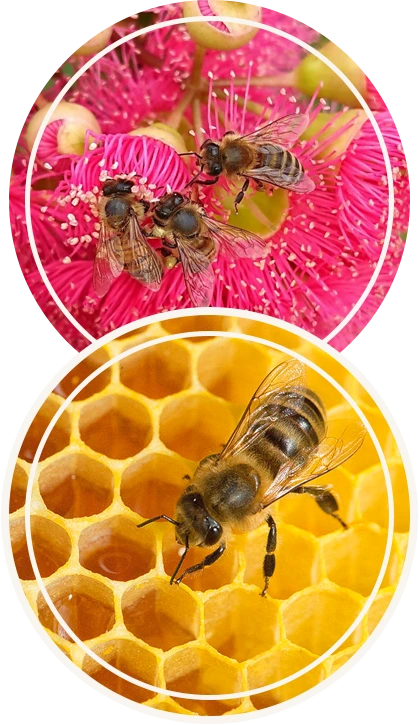
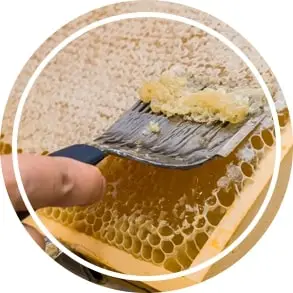
How Red Gum Honey is Extracted?
The process of honey completes when, over the long haul, the nectar created binds with enzymes and wax; thus attaining the honey its characteristic sweet flavor.
To eliminate any leftover wax that might exist, after collecting the product, beekeepers leave it in decanting for a few days. Subsequent to resting for a couple of days, the item is separated and packed.
On the other hand, in the case of crude honey, in the wake of resting for a couple of days, the honey is packaged directly. That is, the product is not filtered.
Properties of Red Gum Honey
With a flawlessly clear, rich golden tone, Red Gum Honey has a smooth, gentle honey flavor. It's less sweet-smelling than Jarrah honey, another Australian healing honey. Red Gum honey has a moderately low level of glucose (20%) and a higher level of fructose (80%) and hence tastes less sweet than other honey types. As honey is a natural item, it's typical for these quantities to vary somewhat yet being less sweet makes it ideal for receiving the rewards without the intense sugar highs and lows.
Honey also contains water. This water, alongside the fructose and glucose, are all in a steady condition of development, with the proportions continually changing, albeit to tiny degrees.
Contingent upon the temperature that the honey is stored, and the proportion of glucose and fructose, the honey might crystallize. This is caused by water molecules isolating from glucose molecules.
Crystallization is certainly not an indication of low quality honey. In fact, it frequently happens more commonly at cooler temperatures in high quality honey that is less processed, raw and 100% pure such as honey varieties available at Geohoney. If a honey crystallizes, it doesn’t affect the taste, quality or safety.
Red Gum honey available at our store is alluded to as 'thixotropic' in consistency. Thixotropic implies that it has a firm consistency if it remains still but if it is moved or stirred it will become thinner and runnier.
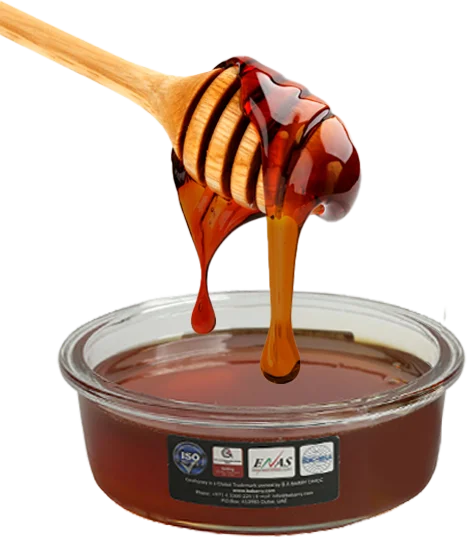
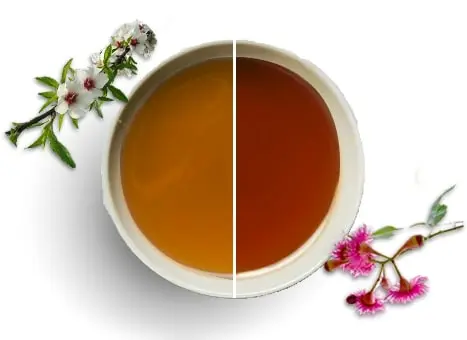
What's The Difference Between Manuka Honey and Red Gum Honey?
- Active healing honey like Manuka and Red Gum honey appear to be identical, but Red Gum honey is tested to be antimicrobial.
- Manuka honey is rich in antibacterial properties whereas Red Gum honey is rich in antimicrobial properties. While Manuka honey has been known to have antimicrobial properties, it's at a much lower level than Red Gum honey.
- Antibacterial means active against bacteria. Antimicrobial means active against microorganisms. Microorganisms are viruses, fungi or bacteria, implying that Red Gum honey has three advantages in one.
About Antimicrobial Potency of Red Gum Honey
Like Jarrah honey, Red Gum honey is known as an active healing honey. All such honeys have a Total Activity, or TA, rating. A honey with a TA rating over 10 has intense antimicrobial properties. Geohoney’s Red Gum honey is tested for its TA rating so that customers can know we're totally transparent and fair about the power of our honey.
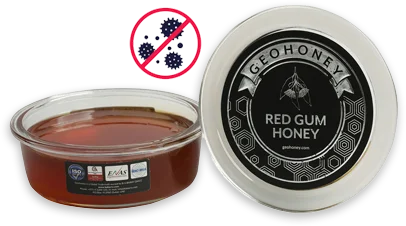
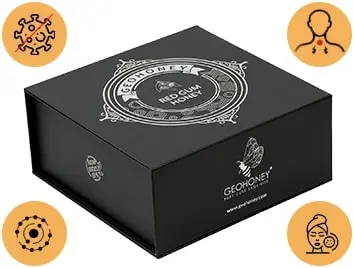
WHAT ARE THE BENEFITS OF Red Gum HONEY?
-
It is extremely effective at inhibiting microbial growth, thereby assisting in faster wound healing.
-
Strong antimicrobial properties of Red Gum honey also help in treating sore throat, cough or cold, or a yeast infection as is the case with candida.
-
The natural antioxidant and anti-inflammatory properties of this honey are highly effective in supporting a healthy immune system and good overall health.
-
It is great at improving skin health, treating acne and reducing skin aging signs.
How to Use Red Gum Honey?
Red Gum honey is a dark colored honey with a distinctive fruity flavor. It carries a full bodied fresh fruit almost plum flavor which is less sweet than other honey varieties available in the world. The less sweet flavor & golden color makes Red Gum honey a versatile variety and can be used in any kind of recipes such as smoothies to marinades.
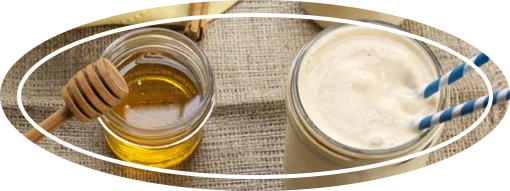
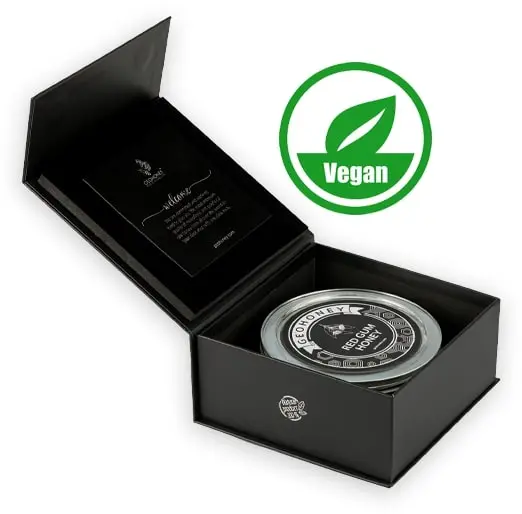
IS Red Gum Honey Vegan?
Like animal horticulture, honey bees are reproduced, purchased, and sold. While honey bees are not eventually slaughtered like cows or chickens on account of dairy or eggs, the vegetarian point of view is that honey bees' labor in the production of honey is animal exploitation.
In one extensive study on the effects of commercial relocation and the health of honey bees, specialists observed that these grown-up honey bees lived shorter lives and showed signs of oxidative stress (physiological stress measurable at a cellular level) when shipped across the country for fertilization of yields and assortment of honey.
Also, both accidental and intentional honey bee deaths happen in commercial beekeeping. Indeed, even in the gentlest removal of the honeycombs, honey bees can get squashed or harmed. Hives going in size from 10,000 to 100,000 honey bees can become infected with a disease and be culled to prevent further spread.
Winnowing lower-quality queen honey bees benefits the reproduction of high-quality queens, and in commercial beekeeping, reproduction is critical to the primary concern. Once in a while whole hives will be separated in winter to minimize expenses as its more affordable to begin with new honey bees each season than it is to keep up with the hives during colder months.
Risks of Consuming Red Gum Honey
Honey is a form of sugar, thus, it is suggested to consume it in moderate quantities. The American Heart Association (AHA) suggests that women should get no more than 100 calories a day from added sugars and men no more than 150 calories per day from this source. This adds up to around 6 teaspoons for women and 9 teaspoons for men.
Another risk of consuming Red Gum honey is botulism. The microscopic organisms that cause this serious ailment can contaminate honey, and roughly 20% of infant botulism cases in the U.S. originate from raw honey.
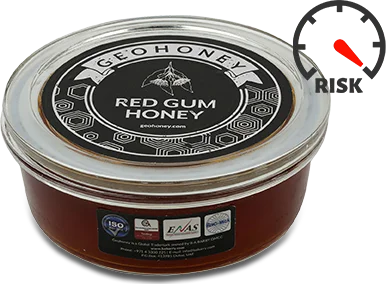
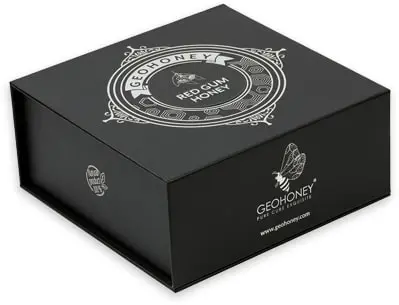
Takeaway
We are honored to have the absolute most pristine natural bee farms across the world where our honey bees produce a portion of the universe's cleanest and truly delectable honey.
Geohoney doesn't suggest storing Red Gum Honey in the fridge, as it essentially speeds up the course of crystallization and will solidify your honey. For the best flavor, honey is best kept at room temperature. During winter and assuming you are in an unusually cold area, try storing your honey jar next to a window where daylight radiates through and warms the honey up. Buy this rare honey variety now & indulge in its rich flavors.
BUY OUR RED GUM HONEY
What’s the buzz, Join the hive !
SIGN UP TO OUR NEWSLETTER
Be the first to know about our hot deals, new arrivals.


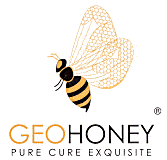
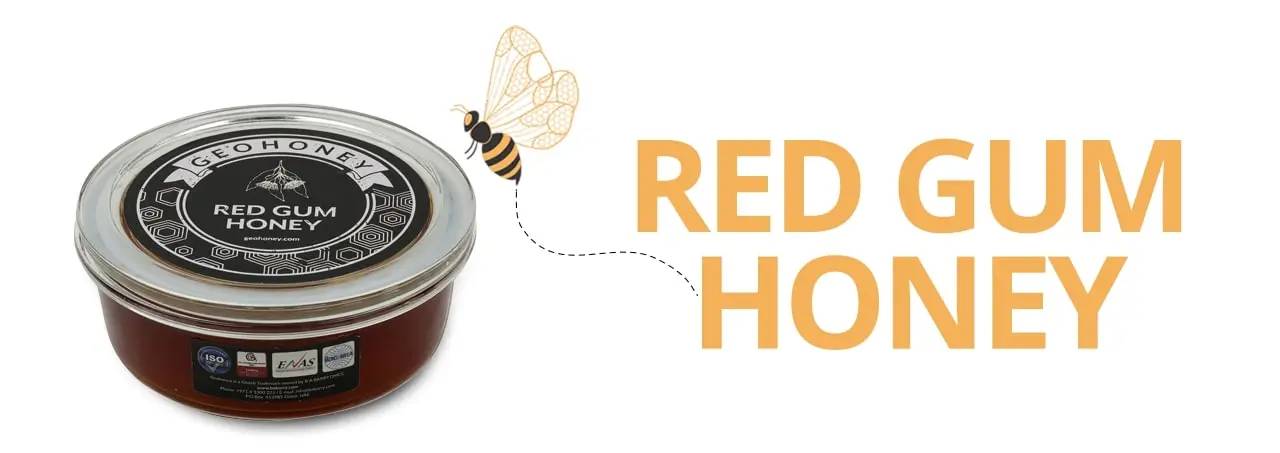

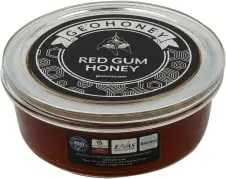


 Pay By Cards
Pay By Cards
 PayPal
PayPal
 Stripe
Stripe
 Other Payment Methods
Other Payment Methods







